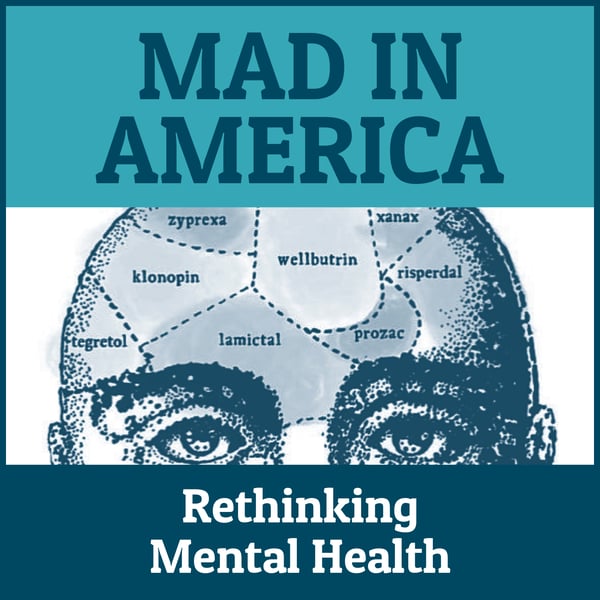Beyond Paternalism or Abandonment in Mental Health Care: An Interview with Neil Gong
Mad in America: Rethinking Mental Health
Mad in America
4.8 • 201 Ratings
🗓️ 17 July 2024
⏱️ 41 minutes
🧾️ Download transcript
Summary
Neil Gong is an assistant professor of sociology at UC San Diego, where he researches psychiatric services, homelessness, and how communities seek to maintain social order. Neil's new book, "Sons, Daughters, and Sidewalk Psychotics: Mental Illness and Homelessness in Los Angeles," published by the University of Chicago Press, offers a detailed look into the starkly different worlds of mental health care in Los Angeles. He contrasts the public safety-net clinics, which strive to keep patients housed and out of jail, with the elite private care centers that cater to the wealthy. He finds that while the public system focuses on survival and containment, often providing only minimal care, the private system aims at rehabilitation and respectability, albeit sometimes at the cost of personal freedom.
Neil’s extensive fieldwork included spending nights in homeless encampments, shadowing social workers, and engaging with patients and families across the socioeconomic spectrum. His work highlights systemic failures and societal indifference but also the humanity of those working and living within these disparate treatment systems. In our conversation, we unpack the critical insights from his book and explore the broader implications of his research. How do these disparate systems reflect our societal values? What can we learn about the intersection of mental health, homelessness, and social policy? And perhaps most importantly, how can we move towards a more equitable and humane approach to mental health care?
***
Thank you for being with us to listen to the podcast and read our articles this year. MIA is funded entirely by reader donations. If you value MIA, please help us continue to survive and grow.
To find the Mad in America podcast on your preferred podcast player, click here
© Mad in America 2024. Produced by James Moore
Transcript
Click on a timestamp to play from that location
| 0:00.0 | Welcome to the Madden America podcast, your source for science, psychiatry, and social justice. |
| 0:11.0 | Neil Gong is an assistant professor of sociology at UC San Diego, where he researches psychiatric services, homelessness, |
| 0:22.1 | and how communities seek to maintain social order. |
| 0:25.1 | Neal's new book, Sons, Daughters, and Sidewalk Psychotics, Mental Illness and Homelessness |
| 0:30.1 | in Los Angeles, was published by the University of Chicago Press. |
| 0:34.5 | He offers a detailed look into the starkly different worlds of mental health care in L.A. |
| 0:38.9 | He contrasts the public safety net clinics, which strive to keep patients housed and out of jail, |
| 0:44.1 | with the elite private care centers that cater to the wealthy. |
| 0:47.5 | His findings reveal a stark and troubling divide. |
| 0:50.2 | While the public system focuses on survival and containment, often providing only minimal care, |
| 0:56.0 | the private system aims at rehabilitation and respectability, albeit sometimes at the cost of personal freedom. |
| 1:03.0 | Neal's extensive field work for this book included spending nights in homeless encampments, shadowing social workers, |
| 1:09.0 | and engaging with patients and families across |
| 1:11.4 | the socioeconomic spectrum. His work highlights systemic failures and societal indifference, |
| 1:16.8 | but also the humanity of those working and living within these disparate treatment systems. |
| 1:21.7 | So thanks for coming on the Mad America podcast, Neil. |
| 1:24.6 | Thanks for having me. I've been a long time listener and reader. |
| 1:27.9 | We're excited to have you here. To get started, can you just share with our listeners a little bit more about |
| 1:32.5 | your story, who you are, and how you got interested in focusing on mental health, homelessness, |
| 1:38.9 | and the disparities in psychiatric care? I had for a long time thought I was going to be |
| 1:43.7 | some sort of mental health practitioner, |
| 1:45.6 | perhaps a clinical psychologist, in part because of things I'd seen family members and friends |
... |
Please login to see the full transcript.
Disclaimer: The podcast and artwork embedded on this page are from Mad in America, and are the property of its owner and not affiliated with or endorsed by Tapesearch.
Generated transcripts are the property of Mad in America and are distributed freely under the Fair Use doctrine. Transcripts generated by Tapesearch are not guaranteed to be accurate.
Copyright © Tapesearch 2025.

